PHNOM PENH – Cambodia’s opposition leader Sam Rainsy has called for an independent investigation into widespread electoral irregularities, a day after his party secured surprising gains in a tense national election. As expected, Prime Minister Hun Sen and his Cambodian People’s Party (CPP) have claimed victory in the polls, but look set to come away with a severely reduced majority. According to preliminary results released by Information Minister Khieu Kanharith on his Facebook page last night, the CPP won 68 seats in the 123-seat National Assembly, down from the 90 it has held since the 2008 election.
The opposition Cambodia National Rescue Party (CNRP) emerged with 55, nearly doubling the combined 29 seats previously occupied by the Sam Rainsy Party and Human Rights Party before they merged to form the CNRP last year. Despite his party’s impressive showing, CNRP president Rainsy rejected the government’s election result, claiming that more than a million people had been disenfranchised due to voter-list problems and other irregularities. “We don’t accept the election results,” he told a crowded news conference at the party’s headquarters in Phnom Penh. “There are too many irregularities with far-reaching implications that have distorted and reversed the will of the people.”
The CNRP has called for the formation of an independent committee comprising representatives of the two political parties, civil society and election monitors, which should probe complaints and make a final report by August 31. Rainsy said that in the event the allegations of glaring irregularities are upheld, the party will call for recounts and a possible re-run of the election.
The surprise election result follows an unusually vibrant campaign period in which young CNRP supporters clad in the party’s rising sun insignia swarmed through the Cambodian capital on motorbikes chanting their desire for change. Similar scenes also took place in provincial towns, where Rainsy and Human Rights Party founder Kem Sokha whipped crowds into a frenzy during a week-long rural campaign tour that ended on Friday with large rallies in Kampong Cham and Phnom Penh.
“This is a historical day, a great day for Cambodia,” Rainsy told reporters on Sunday afternoon. “People came in great numbers to express their will and democracy seemed to move forward.”
As polls opened on Sunday morning in Takhmao, around 10 kilometers south of the capital, Hun Sen and his wife, Bun Rany, arrived in a black Mercedes S600 sedan to cast their votes before a wall of flashing cameras. Rainsy, barred from voting or running as a candidate in the poll after a royal pardon quashed criminal charges that he claims were politically motivated and allowed his return from self-exile on July 19, spent the morning touring polling stations and reporting alleged electoral irregularities. “Let’s wait for more evidence … but many indications point to the same plan or plot to rig the election in the way that would reverse the will of the people,” he told reporters at a Buddhist pagoda on the outskirts of town.
Rainsy’s complaints echo the observations of independent election monitors, who say the poll – the most peaceful since United Nations-organized elections in 1993 – has also been the least fair. Claims of irregularities are legion: according to a recent voter audit, 9% of voter names had disappeared from the national rolls, while one in ten belonged to “ghost voters” who appeared not to exist. Election monitors also expressed concerns that the indelible ink used to mark the fingers of voters could be easily washed off, enabling fraudulent repeat voting.
Corruption watchdog Transparency International Cambodia said in a statement that “an unusually high number of critical incidents at the polls”, including “large numbers” of voters who were unable to find their names on the voter lists, and others who arrived only to find someone had already voted in their place. Transparency International reported today that in 60% of polling stations, citizens with proper ID were unable to find their names on the list.
Outside a polling station at Moha Montrey pagoda, 25-year-old Thon Viley complained that he tried to vote only to be told that he had already cast his ballot. “I was very disappointed,” he said. “I’m not sure, but I think it might be purposeful cheating.” Hotel worker Sun Kosal, 26, said her name and those of her sister and father were all absent from the list – despite them all having voted in 2008 and in commune elections last year. “This is my land, and I demand democracy to come back to my country,” she said.
At Stung Meanchey Primary School, tensions over missing voter names boiled over into violence after a young man reportedly clashed with a monk over problems with the electoral list. An angry crowd gathered and barricaded a member of the National Election Committee in a classroom after she allegedly failed to address unsubstantiated claims that illegal Vietnamese migrants had attempted to cast ballots.
“We have been eating sour Vietnamese soup for 30 years,” Rainsy told a cheering crowd in the border province of Svay Rieng on July 25. “It’s time for that to stop.”
When a contingent of military police arrived to free the woman, the crowd began hurling rocks and attacking police, who were forced into retreat. The crowd then fell upon two abandoned police trucks in the street outside, smashing them with rocks and setting them alight while chanting slogans against the government and the Vietnamese.
“I’m angry because a monk was punched at the polling station,” one rioter told Asia Times Online, saying he was fighting for the National Rescue Party. Riot police and trucks with water cannons were lined up a few blocks away but did not confront the protesters, who gradually lost interest and dispersed. By nightfall, an uneasy calm had fallen over the city.
Significant setback
The election result represents a considerable setback for Hun Sen, who has ruled the country since 1985 and has seen his electoral support climb at every election since 1993. The CNRP’s successes appear to have exposed the contradictions in Hun Sen’s rule, which has claimed credit for ushering in peace, stability, and years of strong economic growth but also fostered a rapacious system of crony patronage that has resulted in land-grabs, ballooning income inequality, and endemic levels of corruption.
“All the people now realize they’ve received a lot of injustice. Now they want to see a new leader. They were powerless, but now they have power,” said Kem Ley, an independent analyst. “I see this as a great result that tells the CPP that even though they are [still] winning, they are also a loser.”
The CNRP has capitalized on this discontent by hammering home a populist party line calling for a rise in the minimum wage and a monthly pension for the elderly, alongside long-standing promises to tackle corruption and fight what the party claims is a large influx of illegal Vietnamese migrants.
“We have been eating sour Vietnamese soup for 30 years,” Rainsy told a cheering crowd in the border province of Svay Rieng on July 25. “It’s time for that to stop.” The party has also benefited from a rise in the use of social media in urban areas, which has allowed opposition activists to circumvent the CPP’s near-total control of the broadcast media.
However, it remains unclear what leverage the CNRP has to call for an investigation into the election results. The CPP still retains the simple majority required to form a government and is likely to resist calls for an independent probe. Government spokesman Phay Siphan said it was up to the new government-elect as to whether a committee would be formed but said there were already official mechanisms for lodging complaints. “[Rainsy’s] rejection of the election results is nothing new for me,” he said. “He’s said that a number of times already.”
Kem Ley predicted that the CPP would reject opposition calls for an independent probe or a recount but said the opposition would probably use the threat to bring pressure on the ruling party and win greater say in the formation of a new government. Most importantly, he said, was the fact that though the CPP has the simple majority required to form government alone, a quorum of two-thirds is required in the National Assembly before it can swear in a new cabinet.
Hun Sen is unlikely to cede political ground without a fight. Between 1993 and 2008, the politician slowly whittled down Funcinpec, once his royalist coalition partner, by buying off individual officials and engineering splits in the party. Funcinpec failed to win a single seat yesterday, losing the two that it had salvaged in 2008.
Kem Ley said the party’s demise provides a cautionary tale for any negotiations the CNRP might engage in with the CPP. Based on past practice, he said the party would seek to make a deal with the CNRP as a whole – similar to the arrangements with Funcinpec that followed the 1993, 1998, and 2003 elections. If that fails, the CPP could also start “hunting” individual parliamentarians, targeting them with inducements in a bid to promote a split in the opposition party.
Despite the dangers, the CNRP’s strong showing in the elections has put it in a rare advantageous position. “Right now the CNRP has a lot of power to negotiate with the CPP for the benefit of the people,” Kem Ley said. “Everything right now is in the hands of the opposition.”
Published by Asia Times Online, July 29, 2013


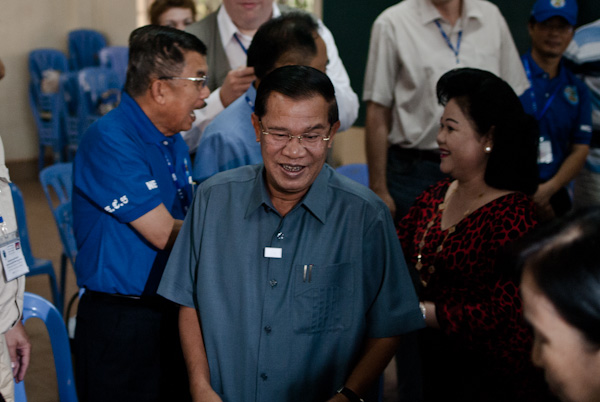
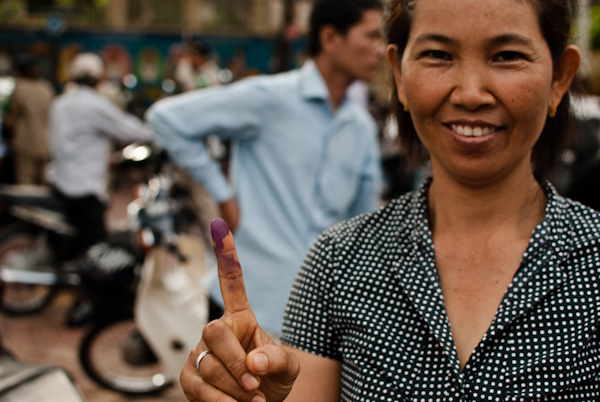
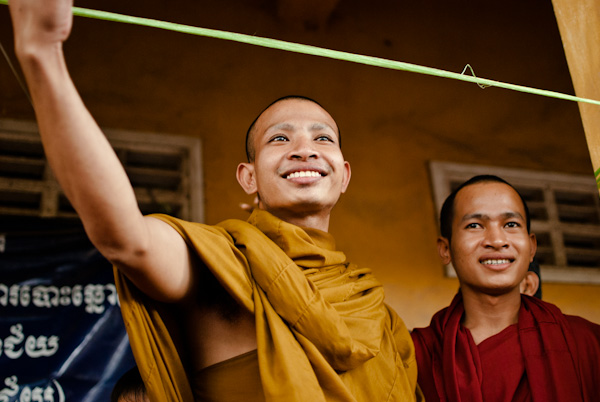
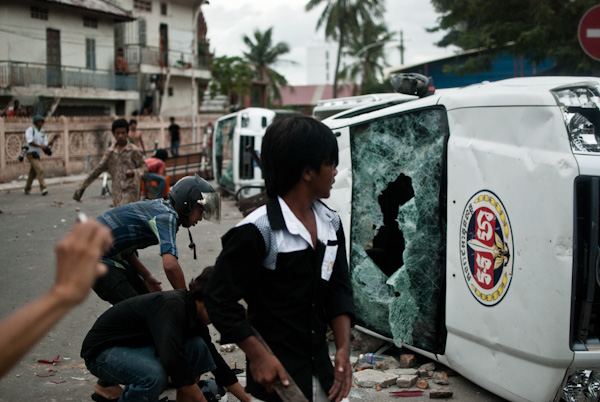
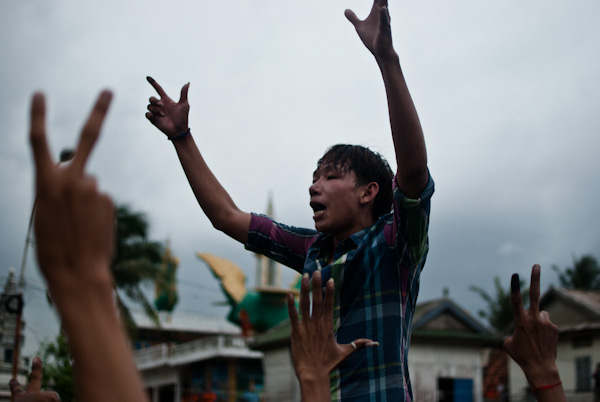
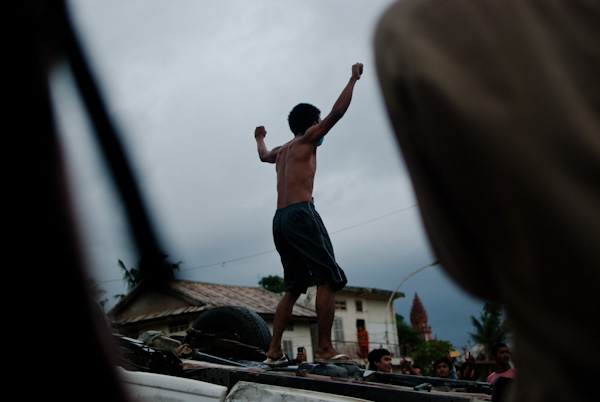
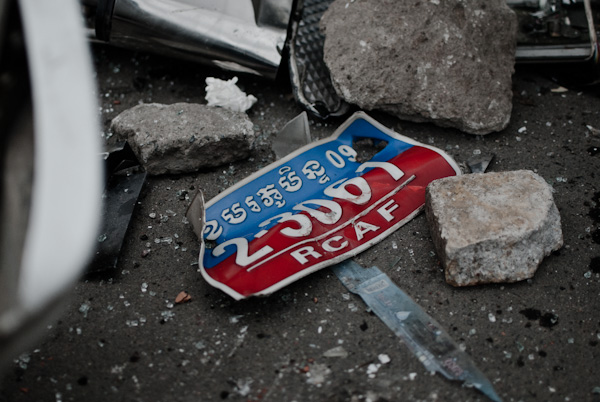
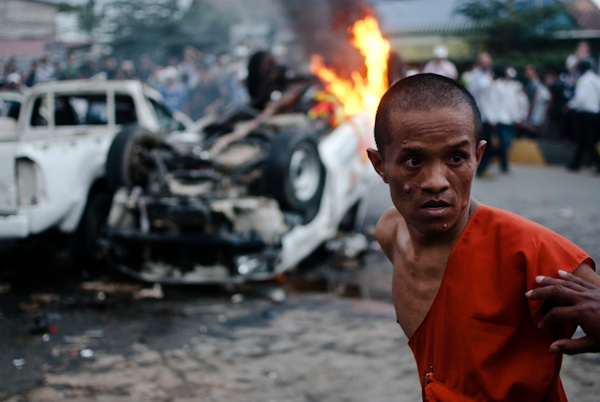
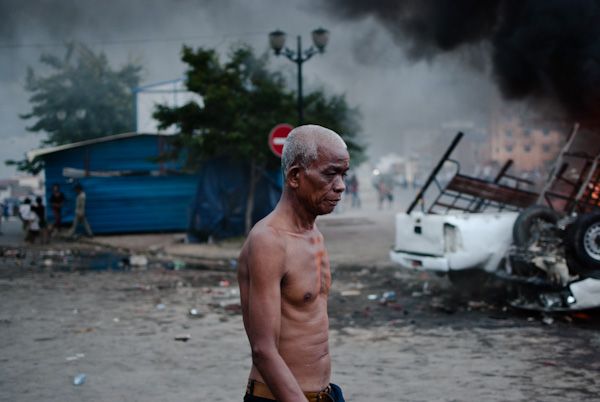
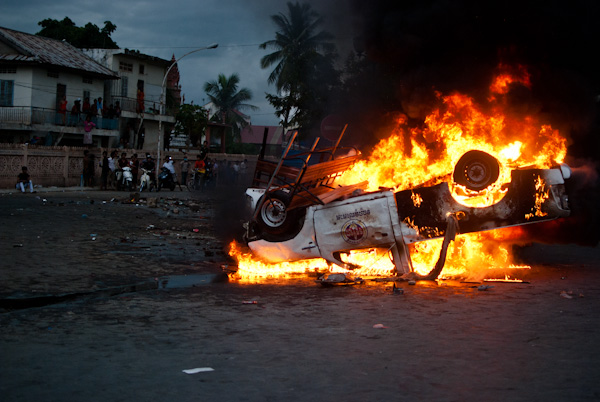


2 comments
National Elections Shake Cambodia « Learning Matters says:
Jul 30, 2013
[…] waken up, which is arguably a good thing. Good coverage on the elections’ aftermath from Sebastian Strangio (Asia Times) and The […]
សុខ ខេមរា says:
Sep 6, 2013
បោះឆ្នោតស្រុកខ្មែរម្តងៗ គ្មានពាក្យថា!